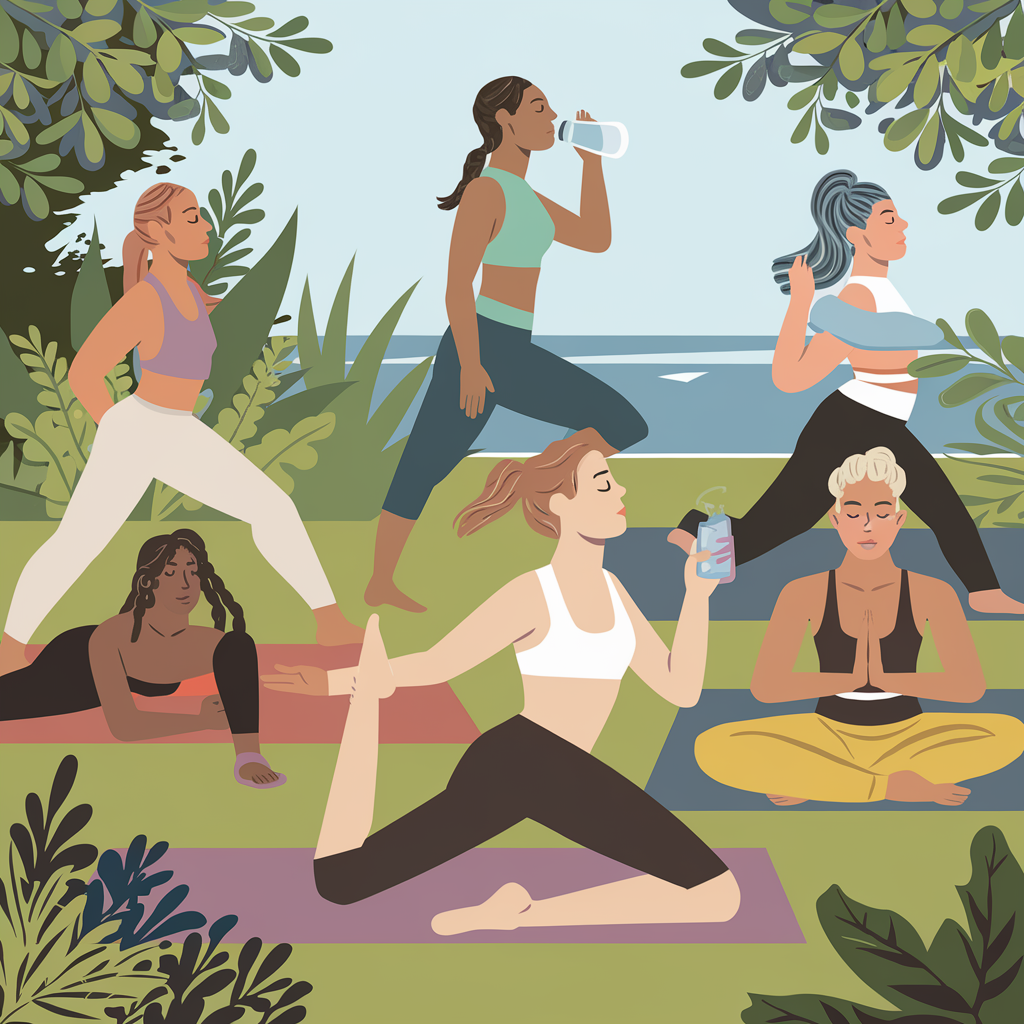
Self-care should encompass everything in your life, including physical exercise and fitness. Growth in the self-care movement has finally accepted the principle’s fact that it does apply to the fitness aspect too. As you do anything, make it a point that it can either benefit or harm you somehow.
While exercise is good for you and an important part of self-care, it is not always healthy. It is possible to exercise in unhealthy ways, for example, by obsessing over a weight goal. Find a way to make room for self-care in how you exercise and stay fit.
What is Self-Care?

First, it is important to understand what self-care is and what it is not. This is a trending term in wellness and mental health, and it is often misconstrued. Self-care is not indulgent or selfish. It is simply taking care of yourself.
Self-care is the radical notion that you should put your own well-being and health first. You can only take care of others or be good at your job and other things if you have taken care of yourself first. Here are some important facts about self-care and what it really looks like in reality:
Self-care does not mean neglecting others. It means making time and space for your own needs.
It refers to every area of health and wellness, which are physical, mental, social, and spiritual health.
Self-care isn’t exactly pampering or indulging, but if these activities decrease stress, then it is good self-care.
Self-care does not mean that the activity has to be self-destructive. An example would be splurging on a new handbag that will put you in debt just because it makes you feel happy, which is not good self-care.
It isn’t always fun. You may not like making your bed in the morning, but if cleaning makes you feel less stressed, then it is good self-care.
Self-care does not have to be expensive. You do not need a pricey massage or expensive fitness class to reduce stress or get fit.
Exercise is one of the best forms of self-care. If you do nothing else for your wellness, work out regularly. Obviously, exercise is good for your physical health, but it’s also good for mental and emotional health. It reduces stress, anxiety, and depression. Exercise gets you out of the house and is often social.
Here are a few more ways that exercise helps your mental health.
Why Is Self-Care Important for Fitness Too?

In everything you do, you must think of how you approach it in order to get all the positive benefits of self-care. Self-care is all-encompassing. It should penetrate every aspect of your life, even fitness and exercise. Although exercise is a form of self-care, it can also lead to some destructive habits:
Making exercise a chore that you just have to get through
Obsessing over your weight and working out only to get to a certain number
Developing an unhealthy relationship with food as part of a diet and fitness regimen
Becoming addicted to exercise
Chronically overdoing it and getting injured or making yourself sick
Getting down on yourself when you don’t meet certain fitness or sports goals
So when such unhealthy habits come forth in the end, one says, “Fitness is way worse than self-care at destroying.” It is an incredibly important thing you could ever do to physical and mental health that would deserve more thoughtful consideration.
Treating exercise as a component of self-care allows you to fully reap its benefits. It becomes something you enjoy rather than a chore. It can help you be more mindful as you forge a powerful mind-body connection. It will make you stronger, healthier, and more self-confident. And, when you master the self-care aspect of exercise, you’ll get better at it and achieve more fitness goals more easily.
What Does Self-Care in Fitness Look Like?

Self-care in any part of your life is all about doing what is best for your overall wellness. Sometimes, this means having fun. Other times, it means restricting bad habits or developing habits that might be slow to reap rewards.
Focusing on Healthy Goals

Everyone works out for something. Goals can sometimes work as good motivators; at other times, goals end up backfiring too. The reader should reevaluate and align her or his exercise goals and reposition them as positive.
To take an example, he could instead work towards carrying or lifting a certain number of pounds or run a certain amount in a 5K, without stopping. All health goals provide the foundational frame within self-care for exercise.
Fueling Your Active Body

The healthy habits of exercise are usually wrapped up with weight-loss desires, which are always centered around unhealthy eating. There can be no real advantage from working out without correct nourishment of the body. People are frequently turning down calories or carbohydrates, often with the aim of being skinny and fit, which really doesn’t do a healthy individual any good.
Pay attention to what your body needs to exercise. Focus on getting a balance of carbohydrates, proteins, and healthy fats from a variety of whole foods. De-emphasize calorie counting and look at food as fuel rather than something to be avoided or demonized.
Getting Enough Sleep

Sleep is important for every aspect of your life, and like food, it fuels your fitness routine. If you are not getting enough sleep, your body will not recover adequately between activities. You will get tired more quickly and even increase your risk of injury. The more you work out and the more intense your workouts, the more you need to sleep, sometimes up to nine hours per night.
Making Time for Recovery

It’s easy to skip the parts of exercise that seem less impactful, warming up and cooling down if you have a busy life. These are the kinds of self-care activities that are easy to skip because they’re not as fun or don’t seem as important. Take time to warm up, stretch, foam roll, or anything else you need to do knowing that it’s good for your body and mind.
Placing Healthy Limits on Exercise

Getting into exercise and fitness, pushing the body towards the next goal, and conquering some physical challenges are all relatively healthy habits. However, pushing too hard into fitness can often become a mental health issue in itself. Furthermore, it is capable of causing injuries or even weakening the immune system.
There is no single rule for how much anyone should work out in a day or a week. Everyone is different, but in general, avoid spending more than two hours per day on gym workouts. To be more active, consider going for a walk or playing sports with friends instead of doing that extra gym session. You’ll get the additional benefits of being outside or socializing.
Enjoying Being Active

The truth is, if you dread every trip to the gym and slog through every minute of every workout, exercise is no longer self-care. Yes, it still helps you get to your step goal or number of calories burned, but it’s doing absolutely nothing for your mental well-being.
Find something you enjoy. Reassess how you work out. Exercise doesn’t have to be a gym. It doesn’t have to be a fitness class, a treadmill, or lifting weights. Go for a hike on trails with your dog. Try a new fitness class. In other words, shake things up and find something you actually like.
